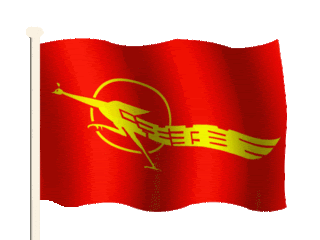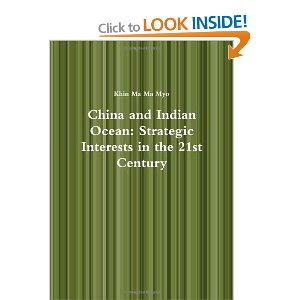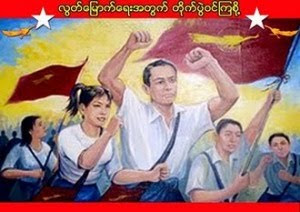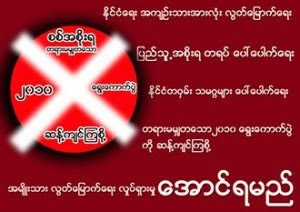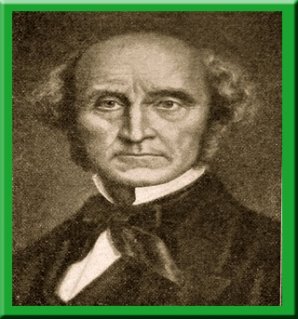European Security Policy by Khin Ma Ma Myo (Essay)
ဘေလာ့ လိပ္စာသစ္သို႕ ေျပာင္းေရႊ႕ျခင္း
ယခုအခါတြင္ ဘေလာ့ကို ဖြင့္ရန္ အခ်ိန္ၾကာျမင့္မွဳမ်ား ရွိေနေၾကာင္း၊ စာဖတ္သူအခ်ိဳ႕မွ အေၾကာင္းၾကားလာပါသျဖင့္ www.khinmamamyo.info တြင္ စာမ်က္ႏွာသစ္ကို ဖြင့္လွစ္ထားပါသည္။
စာမ်က္ႏွာသစ္တြင္ အခ်ိဳ႕ေသာ စစ္ေရး၊ ႏိုင္ငံေရး၊ စီးပြားေရး၊ ပညာေရး၊ က်န္းမာေရးဆိုင္ရာ ေဆာင္ပါးမ်ားႏွင့္ ရသစာစုမ်ား (ႏွစ္ရာေက်ာ္ခန္႕)ကိုလည္း က႑မ်ားခြဲ၍ ျပန္လည္ေဖာ္ျပထားပါသည္။
ယခုဘေလာ့စာမ်က္ႏွာကို ဆက္လက္ထားရွိထားမည္ျဖစ္ေသာ္လည္း ယေန႕မွစ၍ ပို႕စ္အသစ္မ်ား ထပ္မံ တင္ေတာ့မည္ မဟုတ္ပါေၾကာင္းႏွင့္ ပို႕စ္အသစ္မ်ားကို စာမ်က္ႏွာသစ္တြင္သာ တင္ေတာ့မည္ျဖစ္ပါေၾကာင္း ေလးစားစြာ အသိေပး အေၾကာင္းၾကားပါသည္။
စာမ်က္ႏွာသစ္သို႕ အလည္လာေရာက္ပါရန္ကိုလဲ လွိဳက္လွဲစြာ ဖိတ္ေခၚအပ္ပါသည္။
ေလးစားစြာျဖင့္
ခင္မမမ်ိဳး (၁၇၊ ၁၀၊ ၂၀၁၁)
www.khinmamamyo.info
Essay: European Security Policy and EU Governance
Sunday, May 30, 2010
On Politics and Violence: Is Violence an Important Instrument in Politics? (Essay)
Saturday, May 22, 2010
Introduction
The persistent rise of political violence is a very disturbing trend against peace and prosperity in different parts of the world. For historians and anthropologists, political violence is seen as related to movements of social protests against established powers. For political scientists, political violence is seen as related to the often violent response of the state to challenges of social protests. For economists, political violence is seen as related to failures of the state to maintain the monopoly of coercion and force by the state Despite of their different views, there has been a long history of political violence in the world along with the increasing trend of the number of victims, the magnitude of devastation and the new technologies of destruction. With the proliferation of political violence, the problems of violence underpins modern understandings in politics. Violence has been seen as the essence of politics by some political scientists and philosophers. On the other hand, some scholars keep the two clearly apart and set politics up as antithetical to violence. In this essay, I would like to analyse whether violence is an important instrument in politics by exploring the works of political theorists and analysing case studies in a modern world.
Traditional Thinking on Politics and Violence
In his writings of 'Leviathan', Thomas Hobbes depicted the pre-political 'state of nature' as a place of violence, where endeavours to destroy or subdue one another, making life solitary, short and nasty. He clearly demonstrates the relationship between violence and political power by arguing that the power of the artificial body that can satisfactorily achieve this domination must be centred on the power of the sword .
Max Weber also claimed a monopoly over the legitimate use of violence. According to his theory, political action is the domination of the territory by using violence as a legitimate means. He clearly states the relationship between violence and political organizations by arguing as “In addition to the fact that violence is (at least also) used to guarantee 'order', a distinguishing feature of the political group is that it claims power over its administrative staff and its rule in a particular area and guarantees it by force […] in this respect they must be regarded as political organizations .”
By taking the steps of Hobbes and Weber, numerous political theorists and thinkers look at politics from the view point of state organizations. On the other hand, some thinkers also focus on revolutionary violence by looking at politics from the view point of the oppressed people. In the doctrine of Marxism, the violence of the political economic domination and exploitation of the working class by the capitalist state must and will be resisted and eventually overthrown by concerted, and violent, action by the revolutionary working class.
Fanon's Theory
Fanon asserts a new liberationist form of politics that is free of violence by attacking the liberal parliamentary form of party politics that purports to eschew violence, but cannot. He also attacks the realist account, which associates politics with violent domination, and argues for the justification of violent resistance. Although his ideas were profoundly influenced by Karl Marx, Fanon departs most sharply from Marx in his understanding of the functions of violence in the revolutionary process.
For Marx, violence was not the key factor in his analysis of revolution. He expects violence to be a part of the revolutionary process, however, he doesn't consider it as historically necessary. Unlike Marx, Fanon argued that violence was indispensable in the decolonization process, a categorical imperative, without which one could not talk of revolution - or at least one could only talk of it.
In his essay titled “Toward the Liberation of Africa,” he states: “Violence alone, committed by the people, violence organized and educated by its leaders, makes it possible for the masses to understand social truths and gives the key to them. Without that struggle, without that knowledge of the practice of action, there is nothing save a minimum of re-adaptation, a few reforms, at the top, a flag waving: and down there at the bottom an undivided masses still living in the middle ages, endlessly marking time” . He clearly implies that violence is inevitable and suggests that violence is the only way 'the wretched of the earth '; political and economic structures of exploitation and oppression are embodied in rage and resentment, and finally in pathologies of body and mind; can be free. To the contrary, Arendt sees the fundamental assumptions of Fanon's theories of politics and revolutionary change as mistaken.
Arendt's Theory
Arendt looks the relationship between violence and politics by taking alternative views. She thinks the arguments of 'violence as the ultimate power' in Hobbes to Weber's accounts, 'war as politics continued by other means in Clausewitz's account and power as growing out of the barrel of a gun in Mao's account are based on a fundamental confusion between political action and fabrication.
For Arendt, unlike fabrication, action does not encompass bringing an envisaged product into being and violence is only ruled by means-end reasoning. She writes that “The end of human action, as distinct from the end products of fabrication, can never be reliably predicted. The means used to achieve political goals are more often than not of greater relevance to the future world than the intended goals”
Arendt also opposes the kind of straightforwardly instrumentalist reasoning about uses of violence associated with realist political thinkers. Moreover, she argues against the idea that violence is natural for human beings due to human biological nature. However, she also identifies the two contexts in which violence is presented as justifiable such that it may be justified as a response to extreme injustice ; and it may be justified insofar as it opens up the space for politics . For Arendt, the use of non-violence as a tactic requires, as its pre-requisite, that there already be some space of politics and therefore for power. Thus, violence would be necessary in order to make politics possible in the face of a pure anti-political regime. However, she also warns that with violence, there is a danger that the means will overwhelm the end.
Case Study: The break-up of Yugoslavia
In 1989, Yugoslavia indicated gestures to build formal links with the EC and the commission responded in 1990 with a package of arrangements, including PHARE eligibility. However, the progress was blocked by Belgrade's difficulties with the need for open, multi-party federal elections. By 1991, the prospect of federal election became impossible and in June, 1991, Croatia and Slovenia declared themselves as independent states. In response to these declarations, Yugoslav Federal forces moved into Croatia and eventually into Bosnia-Herzegovina. Despite of mediation efforts by EC, heavy fighting broke out in Slovenia in the spring.
In January, 1992, Germany managed to persuade its EC colleagues to agree to the conditional recognition of the independence of Croatia and Slovenia. This recognition indirectly opened up the question of Bosnia's future. Unlike Croatia and Slovenia, any referendum on Bosnia's independence led to division along ethnic lines due to the highly complex ethnic structure of the republic. Later, in 1993, the UN Security Council had to adopt Resolution 816, which permitted the use of force in cases of violation of the airspace in the face of persistent violations of the military flight ban over Bosnia-Herzegovina.
In Yugoslavia, it was inherited traditions of ethnic nationalism which contributed to the collapse of the state. Ethnic nationalism rests on a conception of inherited characteristics that necessarily excludes some individuals and groups from any multi-ethnic community and offers no real prospect of effective democratization . In fact, the prevalence of ethnic nationalism in Yugoslavia prepared the way for the bloody breakup of the state and the restricted prospects for liberal democracy associated with it.
Due to the break-up of the state, more than two hundred thousands of civilians were killed in Bosnia and Croatia. Tens of thousands of women were raped, some of them more than a hundred times, while their sons and husbands were beaten and tortured in concentration camps like Omarska and Manjaca. Millions lost their homes due to a process called "ethnic cleansing." These examples show the relationship between politics and violence in terms of 'ethnic violence' , which centers on state breakdown, anarchy, and the security dilemma that such conditions pose to ethnic groups who engage in defensive arming to protect their lives and property against ethnic rivals, which then stimulates arming by other ethnic groups like an arms race between states.
Case Study: Algeria
The ruling Algerian regime opened up the political system in 1989 and during the process of democratization, the ascendancy of the Islamic Salvation Front (FIS) challenged the very nature of the Algerian state. Then the FIS emerged as the principal political movement in the country and was poised to take power after a landslide victory in the first round of the 1991 legislative elections. However, the Army intervened in the political process and the authoritarian rule was re-instated. FIS was banned and its members imprisoned. As a result, a significant number of Islamist militants took up arms against the regime and a civil conflict ensued.
The Algerian war caused more than 150,000 casualties and was characterized by unspeakable brutality. The military junta accused the insurgents of “terrorism”, while the Islamist groups accused the security forces and their political supporters of “state terrorism” against the free will of the Algerian people who had expressed their preference for Islamism at the polls . The civil violence affecting Algeria was largely interpreted as the inevitable outcome of the confrontation between the secular and liberal values of many within Algerian society and the inherent anti-democratic and violent nature of political Islam.
From the very beginning of the conflict, “the Algerian government invoked the legitimacy of the struggle against terrorism to erase all the political aspects on the crisis in Algeria” and fought the insurgents in the name of defending the values of democracy, secularism, and enlightenment. However, upon closer inspection, it became clear that the generals charged with derailing the democratic process and fighting the insurgents mostly acted to achieve personal political survival and material privileges. This does not mean that genuine concerns about the FIS were not widespread, particularly among the secular and liberal sectors of civil society. In fact, many of its most prominent representatives supported the Army's crackdown.
In fact, the political violence in Algeria had clear antecedents in the war of national liberation waged by the FLN against the French in the 1950s. The Algerian war for independence began in 1954 and ended in 1962 when French President Charles De Gaulle pronounced Algeria an independent country on July 3. During this War of Independence, the FLN (which later came to be seen as a secular, socialist-oriented party) used religion as a way to acquire political legitimacy and used violence to achieve its goals. The anti-colonial struggle was labelled a jihad, and the prerequisite for those who wanted to acquire positions of power after independence in 1962 was to have been a wartime mujahid. The use of violence to gain national independence in Algeria clearly shows the relationship between violence and politics.
Conclusion
The conceptions of the relationship between violence and politics usually fall at the two extremes of the claim that 'politics and violence are essentially the same' on one end of spectrum and the claim that 'politics does not involve violence at all' at the other spectrum. Traditional thinkers interpreted violence as an important instrument of political power. Alternatively, Fanon asserts violence as an essential instrument of national liberation struggles. In contrast, Arendt views violence as a danger that the means will overwhelm the end. According to the case studies, it is obvious that violence has been used by ethnic nationalists and revolutionaries as an important instrument in politics.
Khin Ma Ma Myo (2010)
End Notes
1. Solimano, A. (2004) 'Political Violence and economic development in Latin America: issues and evidence', Macroeconomic del desarrollo series, UN Publications, Santiago, pp. 4
Hobbes, T. (1996[1651]) Leviathan, Cambridge, Cambridge University Press, pp. 116-121
Weber, M. (1978[1921]) Economy and Society, Berkelye, C.A, University of California Press, pp. 55
Marx, K. (1978 [1875]) Critique of the Gotha Programme, London, Progress Publishers
Frazer, E. & Hutchings, K. (2008) 'On Politics and Violence: Arendt Contra Fanon', Contemporary Political Theory, No. 7, pp. 90–108
Fanon, F. (1967) Toward the Liberation of Africa, New York, Monthly Review Press, pp. 118
Fanon, F. (2001 [1961]) The Wretched of the Earth (Preface by J-P Sartre (trans.) Constance Farrington). Harmondsworth: Penguin Books, pp. 200
Arendt, H. (1973) 'On Violence' in Crises of the Republic, Harmondsworth: Penguin Books.
Arendt (1973) pp.64
Arendt (1973) pp. 79
Duke, S. (2000) The Elusive Quest for European Security: From EDC to CFSP, London, Macmillan Press
Ferdinand, P. (1997) 'Nationalism, community and democratic transition in Czechoslovakia and Yugoslavia” in Potter, D., Goldblatt, D. (eds.) Democratization, Milton Keynes, Polity Press
Oberschall, A. (2000) 'The manipulation of ethnicity: from ethnic cooperation to violence and war in Yugoslavia, Ethnic and Racial studies, 23 (6), November 2000, pp.982-1001
Hafez, M. (2003) Why Muslims Rebel; repression and resistance in the Islamic world, Boulder, Lynn Rienner
Benchikh, Algérie, M.( 2003) Un pouvoir politique militarisé, Paris, Ed. L’Harmattan
Bencherif, O.(1995), ‘Algeria Faces the Rough Beast’, Middle East Quarterly, Vol. 2, No. 4, 1995. Available on-line at: http://www.meforum.org/meq/issues/199512 (accessed on 11/5/2010)
World Day for Cultural Diversity for Dialogue and Development (May 21, 2010)
Friday, May 21, 2010
သီခ်င္းမ်ား
Wednesday, May 12, 2010
စကားလံုး အႏွစ္သာရ အလြန္ေကာင္းမြန္တဲ့ သီခ်င္းေလးေတြပါ။ သီခ်င္းေရးသူ၊ ဆိုသူေတြနဲ႕ စီစဥ္သူ ကရင္နီ ေတာ္လွန္ေရး ရဲေဘာ္ၾကီးမ်ားကို အထူးပဲ ေက်းဇူးတင္ပါတယ္။
(www. youtube.com)
သားေလးသို႕ ေပးစာမ်ား: ေပးစာ (၁)- ေငြေၾကး (Money) ဆိုရာ၀ယ္
Monday, May 10, 2010

သားေလးဖိုးေကာင္းေရ။
ဒီေန႕ညေန ေမေမတို႕ႏွစ္ေယာက္ လမ္းေလွ်ာက္ထြက္ၾကျပီး အျပန္မွာ သားေလးစားဖို႕ မုန္႕၀င္၀ယ္ ေနတုန္း သားေလး အမွတ္မထင္ လုပ္လိုက္တဲ့ အျပဳအမူေလးဟာ ေမေမ့အတြက္ တာ၀န္သစ္တခုကို သတိေပးႏွိဳးေဆာ္လိုက္သလို ျဖစ္သြားခဲ့တယ္။ သားေလးစားဖို႕ မုန္႕ကို ျခင္းေတာင္းေလးထဲထည့္ျပီး ေကာင္တာမွာ ေငြရွင္းမယ္လုပ္ေတာ့ ေမေမ့သားေလးက ေမေမ့ အိတ္ထဲက ပိုက္ဆံကို ႏွိဳက္ယူျပီး Money, Money လို႕ ေအာ္ရင္း အေရာင္းစာေရးကို လွမ္းေပးလိုက္တယ္ေနာ္။ ရုတ္တရက္မို႕ ေမေမ အံ့ၾသသြားခဲ့တယ္။ ေနာက္ေတာ့မွ သားေလးလဲ သံုးႏွစ္ေက်ာ္လာျပီ၊ ေငြကို ကိုယ့္ဘာသာ ကိုင္တြယ္ သံုးတတ္ခ်င္လာျပီဆိုတာကို ရိပ္စား မိလိုက္တယ္။
သားေပါက္စေလးလို႕ ေမေမ အျမတ္တႏိုးေခၚတတ္တဲ့ သားေလးဟာ ေမြးကင္းစတုန္းကလို ေပါက္စေလး မဟုတ္ေတာ့ပဲ လူ႕အဖြဲ႕အစည္းၾကီးထဲက ရွင္သန္ေနထိုင္နည္းေတြကို ေလ့လာ သင္ယူေနသူ တေယာက္ ျဖစ္လာျပီဆိုတဲ့ အသိဟာ ေမေမ့ပခံုးေပၚကို တာ၀န္သစ္တခု ခ်ေပးလိုက္သလိုပါပဲ။ လူတေယာက္ဟာ သူက်င္လည္ျဖတ္သန္းေနတဲ့ ေခတ္တေခတ္ရဲ႕ သမိုင္းေၾကာင္းနဲ႕ ႏိုင္ငံေရး၊ စီးပြားေရး၊ လူမွဳေရး အေျခအေနေတြကို သိျမင္နားလည္ထားရမယ္ တဲ့။ ဒီစကားကို ေမေမ့ ဖိုးဖိုးၾကီးက ေျပာခဲ့ဖူးတယ္။ ဒါေၾကာင့္လဲ ေမေမ သံုးႏွစ္ အရြယ္ ေရာက္တာနဲ႕ ျမန္မာ့သမိုင္း၊ ကမၻာ့သမိုင္း၊ ႏိုင္ငံေရး၊ စီးပြားေရး ေတြကို ဖိုးဖိုးက စျပီး ေျပာျပခဲ့ဖူးတယ္။ ဖိုးဖိုးရဲ႕ လက္ကို အမိအရဆြဲျပီး ျခံထဲမွာ လမ္းေလွ်ာက္ထြက္ရင္း ၾကားခဲ့ဖူးတဲ့ စကားေတြကို အကုန္ မမွတ္မိခဲ့ေပမယ့္ ဘ၀ေက်ာင္းေတာ္ၾကီးတခုရဲ႕ သင္ခန္းစာေကာင္းေလးေတြလို႕ သတ္မွတ္ရင္း ဒီအခ်ိန္ေလးေတြကို လြမ္းဆြတ္ေနဆဲပဲ။ ဒီတုန္းက ဖိုးဖိုးေျပာခဲ့တဲ့ စကားေတြအားလံုးကို မွတ္မိခ်င္လိုက္တာ။
ဘယ္လိုပဲ ျဖစ္ျဖစ္ ေမေမ့သားေလးကိုေတာ့ ေနာင္တခ်ိန္က်မွ ေမေမ့တုန္းကလို ျပန္မွတ္မိခ်င္တဲ့ စိတ္ေလး မေပၚလာရေအာင္ စကားအေနနဲ႕လဲ ေျပာရင္း၊ ေပးစာေလးေတြအေနနဲ႕လဲ ေရးထားခဲ့မယ္ေနာ္။ ေမေမ ေျပာေနတာေတြအားလံုးကို အခု အခ်ိန္မွာ သားေလး နားလည္ခ်င္မွ နားလည္မွာပါ။ ဒါေပမယ့္ တခ်ိန္မွာ သားေလးရဲ႕ စာဖတ္စြမ္းရည္၊ အသိတရားေတြ အသက္အရြယ္နဲ႕ အတူ ၾကီးျမင့္လာတဲ့အခါ ေမေမ့ေပးစာေလးေတြကေန ဗဟုသုတ တစံုတရာေလးကို သားေလး ရယူႏိုင္လာလိမ့္မယ္လို႕ ေမေမ ေမွ်ာ္လင့္ မိပါတယ္။
ပထမဆံုးအေနနဲ႕ သားေလး ညေနတုန္းက ေျပာလိုက္တဲ့ Money ဆိုတဲ့ အေၾကာင္းကို ေမေမ ေျပာျပမယ္ေနာ္။
ေငြေၾကး (Money) ဆိုတာ
ေဘာဂေဗဒ ပညာရွင္ေတြကေတာ့ ေငြဆိုတာ ဘာလဲ လို႕ ေမးလာရင္ ေငြရဲ႕အလုပ္ကို လုပ္တဲ့ အရာမွန္သမွ်ဟာ ေငြပဲ လို႕ ေျဖတတ္ေလ့ရွိၾကတယ္။ ေလာကမွာ လူေတြေကာ၊ ရုပ္၀တၳဳ ပစၥည္းေတြေကာမွာ သူ႕အလုပ္နဲ႕သူ ရွိၾကတယ္ သားေလးရဲ႕။ ဆရာ၀န္ၾကီးက ေဆးကုတဲ့ အလုပ္ကို လုပ္တယ္၊ စာပို႕သမားၾကီးက စာေ၀တယ္၊ ဆရာမၾကီးက စာသင္တယ္။ အ၀တ္ေလွ်ာ္စက္ၾကီးက အ၀တ္ေတြကို သန္႕စင္ေပးတယ္။ တကယ္ေတာ့ လူေတြေကာ၊ ပစၥည္းေတြေကာမွာ တာ၀န္ကိုယ္စီ ရွိေနၾကတာပါပဲ။ ဒီေတာ့ ေငြရဲ႕ အလုပ္ကို လုပ္တာက ေငြပဲဆိုရင္ ဒီေငြရဲ႕ အလုပ္က ဘာေတြလဲ ဆိုတာ ၾကည့္ၾကရေအာင္။
ေငြေၾကးရဲ႕ လုပ္ငန္းတာ၀န္ေတြမွာ သံုးမ်ိဳးသံုးစား ရွိတယ္။ ပထမတမ်ိဳးက ကုန္ပစၥည္းေတြ ဖလွယ္ဖို႕အတြက္ ၾကားခံ အရာ၀တၳဳအေနနဲ႕ သံုးတာ၊ ဒုတိယ တမ်ိဳးက တန္ဖိုး သိုေလွာင္ရံုအေနနဲ႕ သတ္မွတ္တာျဖစ္ျပီး တတိယတမ်ိဳးကက်ေတာ့ တန္ဖိုးတြက္ခ်က္တိုင္းတာမွဳယူနစ္ တခုအေနနဲ႕ အသံုးျပဳတာေတြပါ။
ေငြေၾကးအား ကုန္ပစၥည္းဖလွယ္ေရး ၾကားခံအရာ၀တၳဳ အေနျဖင့္ အသံုးျပဳျခင္း
ေငြဆိုတာကို လူေတြက ရွာေဖြတတ္ၾကပါတယ္။ ဒါေပမယ့္ ဒီေငြေတြနဲ႕ ဘာကိုမွ မ၀ယ္ယူႏိုင္ေတာ့ဘူး ဆိုရင္ ဒီေငြေတြဟာ စကၠဴေတြ၊ ကစားစာရာ သံျပားေတြ ျဖစ္ကုန္မွာပါ။ လူသူမရွိတဲ့ ကၽြန္းတကၽြန္းမွာ လိုခ်င္တဲ့ ပစၥည္းတခုကို ေငြေတြဘယ္ေလာက္ပံုျပီး ေပးေပး၊ သားေလး ရေအာင္ မယူႏိုင္ပါဘူး။ အုန္းေရ ေသာက္ခ်င္ရင္ သားေလးဘာသာ အုန္းသီး ခူးရမွာပါ။ ဒါေပမယ့္ ဒီကၽြန္းေပၚမွာ လူေတြက ရင္းႏွီးျမွဳပ္ႏွံမွဳေတြ လုပ္ျပီး ဟိုတယ္ေတြဖြင့္လာရင္ေတာ့ သူတပါး ပိုင္နက္ထဲက အုန္းသီးကို သားေလး သြားခူးလို႕ မရေတာ့ဘူး။ အုန္းေရေသာက္ဖို႕ ေငြကို အသံုးျပဳရေတာ့မွာပဲ။ ဒါေၾကာင့္ ေငြဆိုတာ လူေတြရဲ႕ အဆံုးသတ္ လိုအပ္ခ်က္လို႕ မဆိုႏိုင္ပါဘူး။ တျခားကုန္ပစၥည္းေတြကို ရယူဖို႕အတြက္ ေငြကို ၾကားခံအရာ၀တၳဳ အေနနဲ႕ အသံုးျပဳၾကရတာပါ။ ဒီေနရာမွာ တျခားကုန္ပစၥည္းေတြကို ရယူသံုးစြဲလိုစိတ္ မ်ားလာေလေလ၊ ေငြကို ရွာေဖြၾကရေလေလပါပဲ။
ခုခ်ိန္မွာေတာ့ သားေလးက ေမေမ ေပးတာယူ၊ ေကၽြးတာစားျပီး မွီခိုသူဘ၀ဆိုေတာ့ လိုခ်င္ရင္ေတာင္းဖို႕၊ ေမေမ့အိတ္ထဲက ႏွိဳက္ယူဖို႕ပဲ သိတဲ့ ပီဘိကေလးငယ္ေလးေပါ့။ တခ်ိန္ သားေလး အရြယ္ေရာက္လာျပီး ကိုယ့္ေျခေထာက္ေပၚ ကိုယ္ရပ္ႏိုင္လာတဲ့ အခါက်ရင္ေတာ့ သားေလး လိုခ်င္တာေတြကို ဘယ္လိုရေအာင္ယူမလဲ ဆိုတဲ့ နည္းလမ္းေတြကို သားေလး ရွာေဖြ တတ္လာမွာပါ။ အဲဒီအခါက်ရင္ အရာရာကို မစြမ္းေဆာင္ႏိုင္ေပမယ့္ မရွိမျဖစ္လဲ အေရးပါလွတဲ့ ေငြေၾကးဆိုတာကို သားေလး ရွာခ်င္လာလိမ့္မယ္။ ဒီလိုရွာရင္း ေငြရဲ႕ ေက်းကၽြန္ျဖစ္သြားသူေတြလဲ လူ႕ေလာကမွာ အမ်ားၾကီးပါပဲ။ ေက်းကၽြန္မျဖစ္ပဲ ေငြေၾကးကို ေကာင္းေကာင္းမြန္မြန္ စီမံခန္႕ခြဲႏိုင္သူေတြလဲ အမ်ားၾကီးပါပဲ။ တခ်ိန္မွာေတာ့ ေငြေၾကးဆိုတာကို စီမံခန္႕ခြဲတဲ့ နည္းလမ္းေတြကို ေမေမသင္ေပးပါမယ္။ ခုဆက္ျပီး ေငြေၾကးကို ၾကားခံ အရာ၀တၳဳ တခုအေနနဲ႕ သံုးတဲ့ ေနရာမွာ မရွိမျဖစ္ နားလည္ သင့္တဲ့ ဘာတာစနစ္ အေၾကာင္းကို ေမေမေျပာျပမယ္ေနာ္။
ကုန္ပစၥည္း ဖလွယ္မွဳကေန အက်ိဳးအျမတ္ရွာတယ္ဆိုတာက လူေတြရဲ႕ သဘာ၀ပါ။ ေရွးတုန္းကေတာ့ ကိုယ္မလိုအပ္တဲ့ ပစၥည္းကို ကိုယ္လိုတဲ့ ပစၥည္းနဲ႕ လဲလွယ္အသံုးျပဳၾကတာေတြ လုပ္ၾကပါတယ္။ မုဆိုးက ငါးစားခ်င္တယ္၊ တံငါသည္က အသားစားခ်င္တဲ့အခါ မုဆိုးနဲ႕ တံငါသည္ေတြ အသားနဲ႕ ငါးကို လဲၾကသလိုမ်ိဳးပဲေပါ့။ ပညာရွင္ေတြကေတာ့ ဒါကို ဘာတာ စနစ္လို႕ ေခၚၾကတယ္။ ဒါေပမယ့္ ဒီလိုလဲလွယ္တာေတြမွာ ျပႆနာေတြက ရွိေနတတ္တယ္။ ၾကီးမားတဲ့ ျပႆနာၾကီး တမ်ိဳးကေတာ့ တိုက္ဆိုင္မွဳေပါ့။ တံငါသည္က အသားစားခ်င္ခ်ိန္မွာ မုဆိုးကလဲ ငါးကုိ စားခ်င္ဦးမွကိုး။ ဒီလိုပဲ မုဆိုးက ငါးစားခ်င္ခ်ိန္မွာလဲ တံငါသည္က အသားစားခ်င္ဦးမွ အလဲအလွယ္ဆိုတာ ျဖစ္လာမွာေပါ့။ ဒီလို double coincidence ျဖစ္ႏိုင္ဖို႕ ဆိုတာကလဲ အေတာ္ခဲယဥ္းတတ္တာကလား။ ဒီေတာ့ လူေတြဟာ ကိုယ္ေပးခ်င္တဲ့ ပစၥည္းကို သူက လိုခ်င္ဖို႕နဲ႕ ကိုယ္လိုခ်င္တဲ့ ပစၥည္းကလဲ သူ႕ဆီမွာ ရွိဖို႕အတြက္ အေတာ္ၾကိဳးပမ္းၾကရတယ္။ ဒီလိုနဲ႕ ဒီျပႆနာကို ေက်ာ္လႊားဖို႕ နည္းလမ္းရွာၾကရင္း ကုန္ပစၥည္း ဖလွယ္လိုသူေတြကို ေတြ႕ဆံုေပးႏိုင္မယ့္ ဆံုရပ္ျဖစ္တဲ့ ေစ်းကြက္ ဆိုတာကို ဖန္တီးလာၾကတယ္။
ဒီလို market innovations ေတြ စလာတဲ့ အခါမွာလဲ တျဖည္းျဖည္းနဲ႕ ျပႆနာေနာက္တခုက ေပၚလာျပန္တယ္။ တန္ဖိုး ဆိုတာပါပဲ။ မုဆိုးပစ္ခတ္ဖမ္းလာတဲ့ ေတာ၀က္တေကာင္နဲ႕ တံငါသည္ရဲ႕ ငါးဘယ္ႏွစ္ေကာင္က တန္ဖိုးခ်င္း ညီမွ်သလဲ။ သစ္ေတာ္သီး တလံုးနဲ႕ ပန္းသီး ဘယ္ႏွစ္လံုးက တန္ဖိုးခ်င္း ညီမွ်သလဲ စတာေတြေပါ့။အဲဒီကေန ကုန္ပစၥည္းေတြကို ၾကားခံ အရာ၀တၳဳ အေနနဲ႕ ဖလွယ္ေပးႏိုင္မယ့္ ေငြေၾကးဆိုတာကို စတင္ ေတြ႕ရွိလာခဲ့ၾကတယ္။ ေငြေၾကးဟာ ကုန္ပစၥည္း ဖလွယ္မွဳဆိုင္ရာ ျပႆနာေတြကို ေျဖရွင္းေပးႏိုင္တယ္။ ကုန္ပစၥည္းဖလွယ္တဲ့အခါမွာ အေရာင္းအ၀ယ္ ဆိုတာက ပါလာတယ္။ ဒီေတာ့ ႏွစ္ဘက္စလံုးကေန ဘာကို ဘယ္ေလာက္နဲ႕ ဘယ္လို စည္းမ်ဥ္းသတ္မွတ္ခ်က္ေတြ ထားျပီး ေရာင္းမယ္၊ ၀ယ္မယ္ ဆိုတာကို ေသေသခ်ာခ်ာ ဆန္းစစ္ ေရြးခ်ယ္ႏိုင္လာခဲ့တယ္။ ဒီေတာ့ မုဆိုးက ေတာ၀က္တေကာင္ကို ငါးေျခာက္ေကာင္နဲ႕ လဲရတာမ်ိဳး မဟုတ္ေတာ့ပဲ ေတာ၀က္ကို ေရာင္းျပီး ငါးသံုးေကာင္နဲ႕ ပန္းသီးေျခာက္လံုး ၀ယ္ႏိုင္တာမ်ိဳး ျဖစ္လာတယ္။ အဲဒီမွာမွ ပိုက္ဆံက ပိုေနေသးရင္ ေနာင္တခ်ိန္မွာ အသံုးျပဳဖို႕ သိမ္းဆည္းထားႏိုင္လာတယ္။ ဒီလို သိုေလွာင္သိမ္းဆည္းထားႏိုင္မွဳဟာ ေငြေၾကးရဲ႕ ဒုတိယ လုပ္ငန္း တာ၀န္ပဲ ျဖစ္ပါတယ္။
ေငြေၾကးအား တန္ဖိုးသိုေလွာင္ရံုအျဖစ္ အသံုးျပဳျခင္း
ကုန္ပစၥည္း သိုေလွာင္ရတာဟာ ေငြေၾကးကို သိမ္းဆည္းထားရတာထက္ ပိုျပီး ကုန္က်စရိတ္ၾကီးတယ္၊ အဆင္မေျပမွဳ ပိုမ်ားတယ္၊ ပစၥည္းတန္ဖိုး ေလ်ာ့က်မွဳကို ကာကြယ္ေပးႏိုင္တယ္။ ဒီလို ဆိုလိုက္လို႕ ေငြကိုပဲ သိမ္းဆည္းထားရမယ္လို႕ေတာ့ တရားေသ မမွတ္ထားပါနဲ႕။ စီးပြားေရး လုပ္ငန္းေတြ လုပ္တဲ့ အခါက်ရင္ေတာ့ ေငြကို အအိပ္မခံပဲ အျမတ္အစြန္း ၾကီးႏိုင္မယ့္ ကုန္ပစၥည္းေတြကို အခ်ိန္အခါနဲ႕အညီ သိုေလွာင္သိမ္းဆည္းထားရတာေတြ ရွိမွာပါ။ ဒါက ေစ်းကြက္ အေျခအေနေပၚမွာ မူတည္ပါတယ္။ ေမေမဆိုလိုတာက လူေတြ ေငြေၾကးကို တန္ဖိုးသိုေလွာင္ရံုအေနနဲ႕ အသံုးျပဳတာကို ဆိုလိုတာပါ သားေလးေရ။
Monetary economy ဟာ Barter Economy ထက္ ပိုျပီး အားေကာင္းေစတဲ့ အခ်က္ကေတာ့ လူေတြဟာ ကုန္ပစၥည္းကို တေနရာမွာ ေရာင္းျပီးရင္ ရရွိတဲ့ ေငြေၾကးကို တန္ဖိုးသိုေလွာင္ရံု တခုအေနနဲ႕ သတ္မွတ္သိမ္းဆည္းထားျပီး ေနာက္ေနရာတခုက်မွ အသံုးျပဳလို႕ ရတာမ်ိဳးပဲ ျဖစ္ပါတယ္။ ဒီေငြေၾကးကို လက္ခံအသံုးျပဳတဲ့ နယ္ေျမက်ယ္ျပန္႕လာေလေလ၊ ဒီေငြေၾကးကို ကိုင္တြယ္ အသံုးျပဳႏိုင္သူေတြအတြက္ အက်ိဳးရွိလာေလေလပါပဲ။ ဒီေတာ့ ေငြေၾကးဆိုတာကို လူအမ်ားက လက္ခံ အသံုးျပဳလာေအာင္ ၾကိဳးပမ္းလာၾကရျပန္ပါတယ္။ အဲဒီမွာ ေငြေၾကးအျဖစ္ လူေတြက လက္ခံ သံုးစြဲတဲ့ ပစၥည္းေတြရဲ႕ အမ်ိဳးအစားေတြကလဲ ကြဲျပားျခားနားေနျပန္တယ္။ တန္ဖိုးၾကီးတဲ့ သယံဇာတပစၥည္းေတြကို ေငြေၾကးအျဖစ္ လူေတြ အသံုးျပဳလာျပန္ေတာ့ ျပႆနာေတြက တက္လာျပန္တယ္။ ပတၱျမားတလံုးနဲ႕ ဟင္းရြက္ကန္စြန္းကို ဘယ္လို ၀ယ္လို႕ ရမွာတဲ့လဲ။ အဲဒီမွာ ႏိုင္ငံေတာ္အစိုးရေတြရဲ႕ အခန္းက႑ေတြက ေပၚလာပါေတာ့တယ္။ ႏိုင္ငံေတာ္ဟာ တန္ဖိုးၾကီးတဲ့ ေရႊေတြကို reserves အေနနဲ႕ ၀ယ္ယူျပီး၊ ဒါနဲ႕ တန္ဖိုးညီမွ်တဲ့ ေငြစကၠဴေတြ၊ အေၾကြေစ့ေတြကို ျပန္ထုတ္ပါတယ္။ ပညာရွင္ေတြကေတာ့ ဒါကို fiat money လို႕ ေခၚၾကတယ္။ ဒါဟာ ဗဟိုဘဏ္ေတြ ေပၚေပါက္လာျခင္းရဲ႕ သမိုင္းအစ ပါပဲ။ ေတြးေခၚပညာရွင္ Hume ဆိုသူကေတာ့ ဘာကို ေငြေၾကးအေနနဲ႕ အသံုးျပဳတယ္ ဆိုတာက အေရးမၾကီးပါဘူး။ အေရးၾကီးတာက သံုးစြဲတဲ့ ေငြေၾကးကို လူအမ်ားက လက္ခံ သံုးစြဲႏိုင္ဖို႕ပဲလို႕ ၁၇၅၈ ခုႏွစ္တုန္းက ဆိုခဲ့ဖူးတယ္။ သူေျပာတာက မွန္ပါတယ္။ ကမၻာေပၚက ေနရာေဒသ အသီးသီးမွာ fiat money ေတြ က သက္ဆိုင္ရာ ႏိုင္ငံက လူအမ်ား လက္ခံ သံုးစြဲမွဳေပၚ မူတည္ျပီး တန္ဖိုး အသီးသီးနဲ႕ ေပၚထြက္လာပါတယ္။ အဲဒီမွာ တခါ ဒီတန္ဖိုးေတြကို ျပန္ညွိဖို႕ ေငြလဲလွယ္ႏွဳန္း (Exchange rate) ဆိုတာေတြကို လူေတြက ထပ္ျပီး ထြင္ၾကရျပန္ေရာ။ ဒါေၾကာင့္လဲ ေငြေၾကးရဲ႕ တတိယ လုပ္ငန္းတာ၀န္ကို တန္ဖိုးတြက္ခ်က္ တိုင္းတာမွဳ ယူနစ္ အေနနဲ႕ အသံုးျပဳမွဳလို႕ ဆိုၾကတာပါ။
တန္ဖိုးတြက္ခ်က္ တိုင္းတာမွဳယူနစ္
တကယ္လို႕ ႏိုင္ငံတႏိုင္ငံမွာ ေငြေၾကးတခုကို ကုန္ပစၥည္းဖလွယ္ေရးၾကားခံ အရာ၀တၳဳနဲ႕ တန္ဖိုးသိုေလွာင္မွဳ အေနနဲ႕ သံုးလာၾကျပီဆိုရင္ ဒါကို ကုန္ပစၥည္းတြက္ခ်က္တိုင္းတာတဲ့ ယူနစ္တခုအေနနဲ႕လဲ အလိုလို အသံုးျပဳျပီးသား ျဖစ္ပါတယ္။ ဒါေပမယ့္ စီးပြားေရးစနစ္ ယိုင္နဲ႕ေနတဲ့ တိုင္းျပည္ေတြမွာေတာ့ ဒီတိုင္းျပည္ေတြရဲ႕ ေငြေၾကးသိုေလွာင္မွဳ တန္ဖိုးက မတည္ျငိမ္တဲ့အတြက္ တျခား ႏိုင္ငံျခားသံုးေငြ တခုခုကို အစားထိုး အသံုးျပဳေလ့ ရွိၾကပါတယ္။ ဥပမာ- ျမန္မာႏိုင္ငံမွာ ဘဏ္လုပ္ငန္းေတြ ဖရိုဖရဲျဖစ္ေနတဲ့ အခ်ိန္တုန္းက အထက္ျမန္မာျပည္ကုန္သည္ေလာကမွာ ျမန္မာပိုက္ဆံအစား တရုတ္ပိုက္ဆံကို အစားထိုး သံုးခဲ့ၾကဖူးပါတယ္။ ဘယ္လိုပဲ ျဖစ္ျဖစ္ တန္ဖိုးတြက္ခ်က္ တိုင္းတာမွဳ ယူနစ္တခုကို ဘံုအေနနဲ႕ အသံုးျပဳမွဳ ျဖစ္လာတဲ့ အခါက်ရင္ေတာ့ Exchange rate တြက္ခ်က္ေနရမွဳေတြနဲ႕ ေဘးထြက္ဆိုးက်ိဳးေတြကို ေရွာင္ႏိုင္ျပီး Efficiency တက္လာႏိုင္ပါတယ္။ ဒါကလဲ ေယဘုယ်အေနနဲ႕ပဲ မွန္ျပီး ေဘာဂေဗဒ ပညာရွဳေထာင့္ကေန ေလ့လာဆန္းစစ္မွဳေတြ အမ်ားၾကီး လိုအပ္ပါေသးတယ္။ ကမၻာ့ေစ်းကြက္မွာ fiat money ျဖစ္တဲ့ ေငြစကၠဴေတြကို လူအမ်ားစုက အသံုးျပဳတာ ျဖစ္ေပမယ့္ ေငြစကၠဴအစား ေရႊေခ်ာင္းေတြ၊ စိန္ေတြကို တန္ဖိုးတြက္ခ်က္မွဳယူနစ္ အျဖစ္ အသံုးျပဳတဲ့ လူတန္းစားေတြကလဲ ရွိေနပါေသးတယ္။ ဘာပဲျဖစ္ျဖစ္ fiat money ေတြကေတာ့ တန္ဖိုးတြက္ခ်က္မွဳ ယူနစ္ေတြအေနနဲ႕ ေနာင္ႏွစ္ေပါင္းမ်ားစြာ ဆက္ျပီး ရွိေနဦးမွာပါ။ ႏိုင္ငံတကာ ကုန္သြယ္ေရးေတြမွာ ေငြလဲလွယ္ႏွဳန္းေတြေၾကာင့္ ျဖစ္တဲ့ economic exposure, transaction exposure, translation exposure ေတြကလဲ ဂယက္ရိုက္ေနဦးမွာပါပဲ။
နိဂံုး
သားေလးေရ-
ေမေမ ခုေျပာေနတဲ့ စကားေတြအားလံုးကို သားေလး အကုန္ နားလည္ႏိုင္မွာ မဟုတ္ပါဘူး။ အခုအခ်ိန္မွာ ေမေမ့အိတ္ထဲက ပိုက္ဆံေလးကို ႏွိဳက္၊ Money လို႕ ေအာ္ျပီး ေခ်ာကလက္ေလးနဲ႕ ေဖ်ာ္ရည္ဗူးေလးေတြကို ေငြနဲ႕ ဖလွယ္ယူခဲ့တဲ့ သားေလးဟာ ဒီေငြေတြ ေမေမ့အိတ္ထဲ ေရာက္လာဖို႕ ေမေမ့လုပ္အားနဲ႕ ဖလွယ္ယူခဲ့ရတာေတြ၊ ဒီလုပ္အားကို ေငြေၾကးနဲ႕ ဖလွယ္ယူဖို႕ ေမေမ့အလုပ္ရွင္ေတြဘက္က ရင္းႏွီးျမွဳပ္ႏွံမွဳေတြ စတဲ့ အဆင့္ဆင့္ တန္ဖိုးျဖတ္မွဳ၊ ဖလွယ္မွဳ၊ သိုေလွာင္သိမ္းဆည္းမွဳ စတာေတြကို နားလည္မွာ မဟုတ္ေသးပါဘူး။ ဒါေပမယ့္ တခ်ိန္မွာေတာ့ အသက္အရြယ္၊ အေတြ႕အၾကံဳ၊ တာ၀န္ယူမွဳ ေရခ်ိန္ေတြ တစတစ ျမင့္တက္လာတာနဲ႕ အမွ် ေငြေၾကးဆိုတဲ့ အေၾကာင္းကို သားေလး တစတစ ပိုနားလည္လာပါလိမ့္မယ္။ ေမေမ့ေပးစာေလးဟာ သားေလးအတြက္ တစံုတရာ ဗဟုသုတေလးကို ေပးစြမ္းႏိုင္လိမ့္မယ္လို႕ ေမေမ ေမွ်ာ္လင့္မိပါတယ္။
သားေလးကို အရမ္းခ်စ္တဲ့
ေမေမ
ခင္မမမ်ိဳး (၉၊ ၅၊ ၂၀၁၀)
ရွဥ့္ကေလးတေကာင္ႏွင့္ စကားေျပာျခင္း
Monday, May 3, 2010
ျမစ္ေရစီးသံေလးေတြက ေတးသြားတခုလို ေပၚထြက္ေနတယ္။ ငွက္ကေလးေတြရဲ႕ အသံကိုလဲ သာယာၾကည္ႏူးဖြယ္ ၾကားေနရတယ္။ ေလညင္းေလးေတြက ခႏၶာကိုယ္ကို တိုးေ၀ွ႕တိုက္ခတ္သြားတာေၾကာင့္ ေအးစိမ့္စိမ့္ေလး ခံစားလိုက္ရတယ္။
'တျဖည္းျဖည္းနဲ႕ ေအးလာျပီ။ မၾကာခင္ ေမွာင္ေတာ့မယ္။ အိမ္ျပန္ဦးမွ'
သူမ တိုးတိုးေလး ေရရြတ္လိုက္မိတယ္။ အလုပ္နားရက္၊ ညေနပိုင္းေတြဆို သူမ ဒီလုိပဲ ျမစ္ကမ္းေဘး လာထိုင္ေနၾက။ အိမ္ကေန ငါး မိနစ္ေလာက္ေလွ်ာက္ျပီး ျမစ္ကူးတံတားေလးကို ေက်ာ္လိုက္တာနဲ႕ ေတာအုပ္တခုထဲကို ေရာက္သြားတတ္တယ္။ ဒီေတာအုပ္ေလးထဲမွာ ျမစ္တစင္းက ပတ္ေခြ စီးဆင္းေနတယ္။ ဒီျမစ္ေၾကာင္းေလးအတိုင္း တနာရီေလာက္ေလွ်ာက္လိုက္ရင္ေတာ့ ပင္လယ္ဆီ စီး၀င္သြားတဲ့ ျမစ္ေလးကို ေတြ႕ရတတ္တယ္။ ပင္လယ္ဘက္ကို တခါတရံမွသာ လမ္းေလွ်ာက္ထြက္သြားေပမယ့္ ေတာအုပ္ထဲက ျမစ္ကမ္းနံေဘးကိုေတာ့ သူမ အျမဲသြားေနက်။ တခါတေလေတာ့လဲ ရာသီဥတုေကာင္းရင္ စာအုပ္ေလးေတြ ယူသြားဖတ္ျဖစ္တယ္။ ဒီလိုညေနေလးေတြမွာ သားေလးကို သူငယ္ခ်င္းက ထိန္းေပးတတ္တာေၾကာင့္ သူမအတြက္ ကိုယ္ပိုင္ အခ်ိန္ေလး ဖန္တီးေပးတဲ့ သူငယ္ခ်င္းမေလးကိုေတာ့ အထူးေက်းဇူးတင္မိပါရဲ႕။
'မျပန္နဲ႕ဦးေလ။ အေစာၾကီး ရွိေသးတယ္'
အသံေလး တသံေၾကာင့္ သူမထိတ္ကနဲ ျဖစ္သြားတယ္။ အသံက သူမေခါင္းေပၚက ျဖစ္ေနတာေၾကာင့္ ၾကက္သီးေလး ျဖန္းသြားသလိုပဲ။ ဟိုဟိုဒီဒီ၊ လိုက္ၾကည့္မိတယ္။
'ရွာမေနနဲ႕။ ဒီမွာ။ ဒီမွာ'
သစ္ပင္ေပၚက ရွည့္ကေလးက ခုန္ဆြဆြနဲ႕ လွမ္းေျပာတယ္။
'ရွဥ္႕ကေလးေရ။ ေလညင္းေလးေတြက တစတစနဲ႕ ၾကမ္းလာျပီ။ ေတာ္ၾကာက်ရင္ ရာသီဥတုကလဲ ပိုေအးလာေတာ့မယ္။'
'ေလကို အျပစ္မတင္ပါနဲ႕။ ေလက ေလပဲ ဥစၥာ။ သူ႕ဘာသာ ျဖည္းျဖည္း တိုက္ခ်င္ တိုက္လိမ့္မယ္။ ၾကမ္းၾကမ္း တမ္းတမ္း တိုက္ခ်င္လဲ တိုက္မွာပဲ။ သူ႕ ေရြးခ်ယ္ခြင့္နဲ႕ သူပဲေလ။ ဒါကို လူေတြကသာ သတ္မွတ္ေနၾကတာပါ'
'ဘာရယ္၊ ဘယ္လို'
ရွဥ့္ကေလး စကားေၾကာင့္ သူမ မ်က္လံုးျပဴးသြားတယ္။ ျပန္ဖို႕ ျပင္ျပီး ထမိရာကေန ျပန္ထိုင္ျဖစ္သြားတယ္။
'လူေတြက မတရားဘူး။ ကိုယ့္အက်ိဳးကိုပဲ ၾကည့္ျပီး အရာရာကို တိုင္းတာတတ္ၾကတယ္။ ေလႏုေအးေအးေလး တိုက္ေတာ့ သာယာလြမ္းေမာျပီး ကဗ်ာေလးေတြစပ္ၾက၊ သီခ်င္းေလးေတြ ေရးၾက။ ေလနီၾကမ္းေတြ တိုက္ေတာ့ ေလကို အျပစ္တင္ၾက၊ ဆဲဆိုၾကနဲ႕'
ရွဥ့္ကေလးရဲ႕ အေျပာကို သူမ သေဘာက်သြားတယ္။ သူေျပာတာကို စဥ္းစားၾကည့္လိုက္ေတာ့လဲ ဟုတ္သားပဲ။ ဟိုခုန္၊ ဒီလႊားနဲ႕ အျငိမ္မေနႏိုင္တဲ့ ရွဥ္႕ကေလးကို ၾကည့္ျပီး ရွဥ္႕ကေလးရဲ႕ အေတြးကို ေထာက္ခံလိုက္မိတယ္။
'မင္းေျပာတာလဲ ဟုတ္ပါတယ္ ရွဥ္႕ကေလးရယ္။ လူဆိုတာက အတၱသမားေတြၾကီးပါပဲ။ လူေတြတင္ မဟုတ္ပါဘူး။ သတၱ၀ါေတြအားလံုးဟာလဲ အတၱေတြ အမ်ားၾကီး ပါ၀င္တဲ့ စိတ္ေတြကို ပိုင္ဆိုင္ထားၾကတာပါ။ မင္းေျပာသလို ေလကို ေလလို႕ ၾကည့္ႏိုင္ဖို႕က အေတာ္ခက္တယ္ ရွဥ္႕ကေလးရဲ႕။ ေလထဲမွာ လူေတြနဲ႕ သတၱ၀ါေတြကို အက်ိဳးျပဳေစတဲ့ ဓာတ္ေတြလဲ ပါတယ္။ အႏၱရာယ္ျဖစ္ေစတဲ့ ဓာတ္ေတြလဲ ပါတာပဲ။ အခ်ိဳးအစားေတြေတာ့ ေနရာေပၚ မူတည္ျပီး ကြာတာေပါ့။ ဒါေပမယ့္ ေလနီၾကမ္းတိုက္တာ၊ ေလမုန္တိုင္းအႏၱရာယ္က်တာ၊ ေလထုညစ္ညမ္းတာေတြကိုပဲ အျပစ္ေျပာေနၾကသူ အမ်ားစုဟာ ေလထဲမွာ ပါတဲ့ ေအာက္ဆီဂ်င္ေၾကာင့္ လူေတြ အသက္ရွင္ခြင့္ ရေနတာကိုေတာ့ ေမ့ေနတတ္ၾကျပန္တယ္။ တကယ့္ပကတိ အမွန္တရားမွာက်ေတာ့ ေလက ေလပါပဲ။ သူ႕ဘာသာသူ သဘာ၀အတိုင္း ျဖစ္တည္ေနတာပါ။ သဘာ၀ျဖစ္တည္မွဳအတိုင္း ေကာင္းတာလဲရွိမယ္၊ ဆိုးတာလဲ ရွိမယ္။ ပိုေကာင္းေအာင္ လူေတြက လုပ္လိုက္လို႕ ပိုေကာင္းသြားတာလဲ ရွိမယ္။ ပိုဆိုးေအာင္ လုပ္လိုက္လို႕ ဆိုးသြားတာလဲ ရွိမယ္။ ဘာပဲျဖစ္ျဖစ္ ေလကေတာ့ ေလပါပဲ'
သူမ စကားသံအဆံုးမွာ ရွဥ္႕ကေလးက သူမေဘးနား ခုန္ဆင္းလာတယ္။
'သဘာ၀ ျဖစ္တည္မွဳကို အမွန္အတိုင္း လက္ခံတတ္ရင္ မိတ္ေဆြ ျဖစ္ခ်င္တယ္'
ရွဥ္႕ကေလးက ခုန္ဆြခုန္ဆြ လုပ္ရင္း ေျပာတာမို႕ သူမလဲ အားရ ေက်နပ္သြားမိတယ္။ အမွန္တရားကို အမွန္အတိုင္း ျမင္တတ္တဲ့ ရွဥ္႕ကေလး တေကာင္နဲ႕ မိတ္ေဆြျဖစ္ရတာက ဟန္ေဆာင္မွဳေတြ၊ အတၱေတြနဲ႕ ဖုံးလႊမ္းေနသူေတြနဲ႕ မိတ္ေဆြျဖစ္ရတာထက္ ပိုျပီး တန္ဖိုးရွိမွာပါ။
'ဒီျမစ္ကမ္းေဘးကို မင္းခဏခဏ ေရာက္လာတတ္တယ္။ ျမစ္ကိုၾကည့္ျပီးလဲ ေတြးေတာ ေငးေမာေနတတ္တယ္။ မင္းဘာေတြ ေတြးေနတာလဲ'
ရွဥ္႕ကေလးက သူမကို ၾကည့္ျပီး ေမးတယ္။ လူေတြတင္မဟုတ္။ ရွဥ္႕ေတြလဲ စပ္စုတတ္တယ္ ထင္ပါရဲ႕။
'တသြင္သြင္ စီးဆင္းေနတဲ့ ျမစ္ေရစီးသံေတြထဲက ဂီတသံစဥ္ေလးေတြကို ငါၾကိဳးစား နားေထာင္ၾကည့္ေနမိတာပါ ရွဥ္႕ကေလးရယ္။ တခါတရံမွာ ေရစီးသံေလးေတြက ျငိမ့္ျငိမ့္ေလးရယ္၊ တခါတေလက်ေတာ့လဲ တ၀ုန္း၀ုန္းနဲ႕။ အဲလို အခ်ိန္ေတြက်ရင္ တခ်ိန္က ျငိမ့္ျငိမ့္ေလး စီးေနတဲ့ ျမစ္တစင္းမွ ဟုတ္ရဲ႕လားလို႕ေတာင္ သံသယ ျဖစ္ခ်င္စရာပါပဲ။ ဒါေပမယ့္ ျမစ္ေလးကေတာ့ တခုတည္းပါပဲ။ ရာသီဥတု အေျခအေနေပၚ မူတည္ျပီး ေရစီးသံေလးေတြ ေျပာင္းကုန္တာပါ'
'ဘယ္လိုပဲ ျဖစ္ျဖစ္၊ ေနာက္ဆံုးေတာ့လဲ ပင္လယ္သမုဒၵရာထဲ စီး၀င္သြားတာပဲ မဟုတ္လား'
ရွဥ္႕ကေလးက သူမရဲ႕ စကားကို လွမ္းေထာက္တယ္။ သူမေျပာခ်င္ေနတာေတြကို ရွဥ္႕ကေလး နားလည္ေနတယ္လို႕ ေတြးမိတာေၾကာင့္ ဆက္ေျပာမိတယ္။
'ဟုတ္ပါတယ္ေလ။ ဘယ္လိုသ႑ာန္နဲ႕ပဲ စီးဆင္း၊ စီးဆင္း ေနာက္ဆံုးေတာ့လဲ ပင္လယ္သမုဒၵရာထဲကိုပဲ စီး၀င္သြားၾကတာပါ။ ဒီပင္လယ္သမုဒၵရာေတြကလဲ ဘယ္ေလာက္ပဲ က်ယ္ေျပာေနေပမယ့္ ေနာက္ဆံုးမွာေတာ့ အနားသတ္ကမ္းစပ္မွာ ရပ္တန္႕သြားျပန္တာပဲ။ တခါတေလက်ေတာ့ေလ လူ႕ဘ၀ဆိုတာကို ျမစ္တစင္းလို႕ ငါျမင္မိတယ္ သိလား။ ျမစ္တစင္းဆိုတာက စီးဆင္းသြားရာ ျမစ္ေၾကာင္းတေလွ်ာက္မွာ လူေတြအတြက္ အက်ိဳးရွိေစတာေတြလဲ ရွိမယ္၊ အက်ိဳးမဲ့ေစတာေတြလဲ ရွိမယ္။ တျပိဳင္နက္တည္းမွာပဲ ေလွငယ္ေလးေတြကို လိုရာခရီးသယ္ေဆာင္ေပးသလို အမွိဳက္သရိုက္ေတြလဲ ပင္လယ္ၾကီးထဲကို သယ္ေဆာင္သြားတာပဲ။ လူတေယာက္ရဲ႕ ဘ၀ျဖတ္သန္းမွဳဆိုတာကလဲ ျမစ္တစင္းရဲ႕ စီးဆင္းမွဳနဲ႕ အတူတူပဲ။ လူ႕ေလာကကို အက်ိဳးျပဳတာလဲ ရွိမယ္၊ ဆုတ္ယုတ္တာလဲ ရွိမယ္။ တခ်ိန္တည္းမွာပဲ ကိုယ္လုပ္တဲ့ ေကာင္းမွဳ၊ မေကာင္းမွဳေတြကိုလဲ ဘ၀သံသရာဆိုတဲ့ ပင္လယ္ၾကီးထဲကို သယ္ေဆာင္သြားတာပဲေလေနာ္။ ဘယ္လိုပဲျဖစ္ျဖစ္ ဒီပင္လယ္သမုဒၵရာၾကီးမွာလဲ အနားသတ္ကမ္းစပ္ဆိုတာ ရွိသလို၊ ငါတို႕ရဲ႕ ဘ၀ သံသရာၾကီးမွာလဲ အဆံုးသတ္ ဆိုတာ ရွိမွာပဲ။ ဒါေၾကာင့္ ငါျမစ္ကမ္းနံေဘးမွာ လာထိုင္ျပီး ဒီျမစ္ရဲ႕ လားရာ အနားသတ္ကမ္းစပ္ကို ဆင္ျခင္ၾကည့္မိေနတာပါ။ ဒီျမစ္ကေလးဟာ တခ်ိန္မွာ ပင္လယ္ထဲ စီး၀င္သြားရမယ္၊ အဲဒီကေန ကမ္းစပ္တခုဟာ အနားသတ္ျဖစ္သြားမယ္ ဆိုတာ သိခ်င္မွ သိရွာလိမ့္မယ္။ ဒါေပမယ့္ သူဟာ ျမစ္ျဖစ္လာတဲ့ အတြက္ေတာ့ သဘာ၀ျဖစ္တည္မွဳအတိုင္း ျမစ္ျဖစ္ေနတာပဲ။ ငါတို႕ လူေတြက်ေတာ့ လက္ရွိဘ၀ရဲ႕ အဆံုးသတ္မွာ သံသရာ အဆက္ဆက္ကို က်င္လည္ၾကရဦးမယ္။ အဲဒီသံသရာ စက္၀န္းရဲ႕ အဆံုးမွာ နိဗၺာန္ဆိုတာ ရွိတယ္။ ဒါကို သိေနရက္နဲ႕ လူျဖစ္တာတဲ့ ဘဘာ၀ ျဖစ္တည္မွဳအတိုင္းပဲ ေနသင့္သလား၊ မေနသင့္ဘူး လား ဆိုတာေတြ ငါေတြးေနမိတယ္။ ဒီျမစ္ကေလးကို လာၾကည့္မိေနရင္း ၀င္လာတဲ့ ပထမ အေတြးက ဒါပဲ။'
'ဒါက ပထမ အေတြးဆိုေတာ့ ဒုတိယအေတြးလဲ ရွိေသးတယ္ေပါ့'
'ဒုတိယ အေတြးကေတာ့ သတ္မွတ္ခ်က္၊ အသိအမွတ္ ျပဳမွဳေတြနဲ႕ ဆိုင္မလားပဲ'
'လုပ္စမ္းပါဦး။ မင္းအေတြးကို'
ရွဥ္႕ကေလးက ခုန္ဆြဆြ မလုပ္ေတာ့ပဲ ျငိမ္ျငိမ္ေလးေနရင္း ေမးတယ္။
'မင္းကို ငါတို႕ဘာသာ စကားနဲ႕ ရွဥ့္လို႕ ေခၚၾကတယ္။ မင္းတို႕က ေသးေသးေကြးေကြးေလးေတြဖို႕ ရွဥ့္ကေလးလို႕လဲ ေျပာၾကတယ္။ တခ်ိဳ႕ကေတာ့ ရွဥ့္ေလးေတြကို ရွဥ့္ငေပါေလးေတြလို႕ ေခၚၾကျပန္တယ္။ အျငိမ္မေနႏိုင္ပဲ ခုန္ဆြဆြ လုပ္ေနၾကလို႕ ေပါေတာေတာေလးေတြလို႕ ထင္တာ ျဖစ္မွာပါ။ ဒါေပမယ့္ ခုမင္းက ယူေက ရွဥ့္ဆိုေတာ့ မင္းကို အဂၤလိပ္လို သူတို႕သတ္မွတ္ခ်က္နဲ႕ ေခၚၾကမွာပဲ။ ျပင္သစ္လူမ်ိဳးက မင္းကို ေတြ႕ေတာ့လဲ ျပင္သစ္လို မင္းကို အသိအမွတ္ျပဳမွာေပါ့။ တရုတ္လူမ်ိဳးက ေတြ႕ေတာ့လဲ တရုတ္ဘာသာစကားနဲ႕ မင္းကို အသိအမွတ္ျပဳမွာေပါ့။ ဒီလုိပဲေလ။ ဒီျမစ္ၾကီးမွာလဲ နာမည္ရွိတယ္။ River Don တဲ့။ သူ႕ကို ဘာသာစကား အမ်ိဳးမ်ိဳးနဲ႕ လူအမ်ိဳးမ်ိဳးက သ႑ာန္အမ်ိဳးမ်ိဳးနဲ႕ သတ္မွတ္ေျပာဆိုၾကတယ္။ အသိအမွတ္ျပဳၾကတယ္။ တကယ္တမ္းက်ေတာ့ ဒီသတ္မွတ္ခ်က္ဟာ သတ္မွတ္သူေတြက ႏွဳတ္ဖ်ားနဲ႕ စာလံုးေတြမွာပဲ ရွိေနၾကျပီး၊ ျမစ္ရဲ႕ စီးဆင္းမွဳနဲ႕ ဘာမွ မပတ္သက္ဘူးေလေနာ္။ သူ႕မွာနာမည္ရွိရွိ၊ မရွိရွိ ျမစ္ကေတာ့ သူ႕ဟာသူ ဆက္စီးေနမွာပဲ မဟုတ္လား။ တို႕လူေတြမွာလဲ ဒီအတိုင္းပါပဲဟာ။ လူသားတေယာက္အေနနဲ႕ လူ႕ေလာကကို ေရာက္လာျပီး မၾကာခင္မွာပဲ မိဘေတြ၊ ေဆြမ်ိဳးေတြက ကိုယ့္ကို နာမည္တခု ေပးလိုက္ၾကတယ္။ ဒီနာမည္ဟာ ေမာင္ျဖဴျဖစ္ျဖစ္၊ ေမာင္ညိဳျဖစ္ျဖစ္ ဒီနာမည္နဲ႕ ဆက္ရပ္တည္သြားၾကရတယ္။ တကယ္တမ္းက်ေတာ့ ေမာင္ျဖဴဆိုတဲ့ နာမည္က လူကိုယ္ခႏၶာ တခုကို သတ္မွတ္ေခၚေ၀ၚေနတာ။ ဒီကိုယ္ခႏၶာနဲ႕ပဲ ေနာက္တေနရာက လူေတြကက်ေတာ့ ေမာင္နီလို႕ အသိအမွတ္ျပဳခ်င္ျပဳထားၾကဦးမွာ။ အဲဒီမွာမွ ဒီကိုယ္ခႏၶာကလဲ ျမဲသလားဆိုေတာ့ မျမဲျပန္ဘူး။ ဒီမျမဲတဲ့ ကိုယ္ခႏၶာကိုပဲ မျမဲတဲ့ နာမည္ေတြနဲ႕ သတ္မွတ္ေခၚေ၀ၚၾက၊ အသိအမွတ္ေတြျပဳၾက။ ဒါေတြကိုပဲ ငါတို႕ လူသားေတြက တြယ္တာ ျမတ္ႏိုးေနၾကရျပန္ေရာ။ တကယ္ေတာ့ လူေတြအားလံုးဟာ သတ္မွတ္ခ်က္ေတြရဲ႕ အက်ဥ္းသားေတြပါပဲ။မျမဲတာေတြကိုမွ ဖက္တြယ္ေနၾကရသူေတြပါ။ လူေတြတင္မဟုတ္ပါဘူးေလ။ မင္းတို႕ သတၱ၀ါေတြလဲ ပါတာပါပဲ'
ရွဥ့္ကေလးက သူမစကားကို နားေထာင္ရင္း ေခါင္းျငိမ့္တယ္။
'ဘာပဲျဖစ္ျဖစ္ပါေလ။ မင္းေျပာသလိုပဲ သဘာ၀ ျဖစ္တည္မွဳကို နားလည္လက္ခံထားႏိုင္ရင္ေတာ့ အဆိုး၊ အေကာင္းဒြန္တြဲေနမွဳေတြကို ျမင္ၾကည့္ႏိုင္တာေပါ့။ ေျပာသာ ေျပာရတယ္။ ေလကို ေလလို႕ပဲ ျမင္ႏိုင္ဖို႕ဆိုတာကေတာင္ ေတာ္ေတာ္ခက္တာ ကလား။ အဲဒီသဘာ၀ျဖစ္တည္မွဳကေနမွ တဆင့္ ေက်ာ္လြန္ျပီး သံသရာ အဆံုးသတ္ခရီးကို လွမ္းႏိုင္ဖို႕၊ မျမဲတဲ့ သတ္မွတ္ခ်က္ အတၱေဘာင္ေတြကေန ရုန္းထြက္ႏိုင္ဖို႕ ဆိုတာေတြက ပိုခက္တာေပါ့ေလ။ ငါလဲ ေတာ္ေတာ္ ၾကိဳးစား ရဦးမွာပါ။ ဒါေတြကို ေက်ာ္ႏိုင္ဖို႕၊ ရုန္းထြက္ႏိုင္ဖို႕ ဆိုတာက အတၱမီးနဲ႕ သံေယာဇဥ္မီးေတြ အားလံုးကို ျငိမ္းသတ္ႏိုင္မွ ျဖစ္မွာ။ ခုခ်ိန္မွာေတာ့ လက္ရွိဘ၀ ျဖစ္တည္မွဳေလးရဲ႕ မျမဲတဲ့ ခႏၶာကိုယ္ေသြးသားကေန ဖြဲ႕တည္လာတဲ့ မ်ိဳးဆက္သစ္ေလးအတြက္ ဒီအေတြးေတြကို ငါေလးေလးနက္နက္ ထပ္မေတြးခ်င္ေသးဘူး ရွဥ္႕ကေလးရယ္။ အိမ္မွာ ေမွ်ာ္ေနမယ့္ ငါ့သားေလးဆီကို ငါ ျပန္သြားရဦးမယ္။ ေနာက္အပတ္ေတြက်မွ ေတြ႕မယ္ေနာ္'
ရွဥ္႕ကေလးက ေျပာရင္းဆိုရင္း သစ္ပင္ေပၚ ခုန္အတက္၊ သူမကလဲ ျမစ္ကမ္းနံေဘးက ခြာျပီး ျမစ္တစင္းနဲ႕ တူတဲ့ ဘ၀ၾကီးထဲမွာ ျဖတ္သန္းဖို႕ ခြန္အားေတြ ျပန္ျဖည့္ရင္း။
ခင္မမမ်ိဳး (၂၊ ၅၊ ၂၀၁၀)

